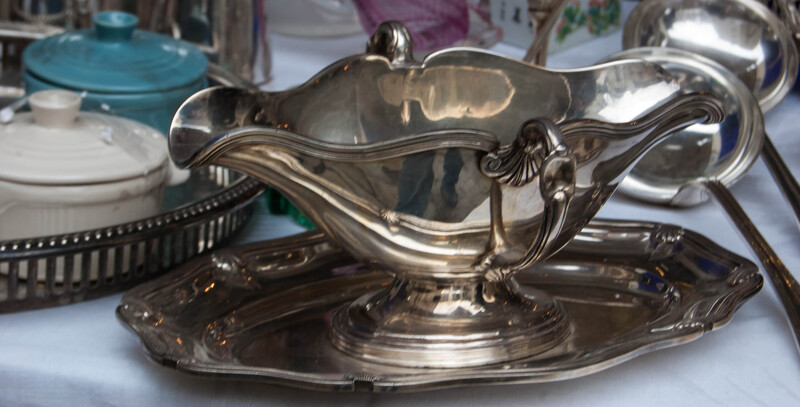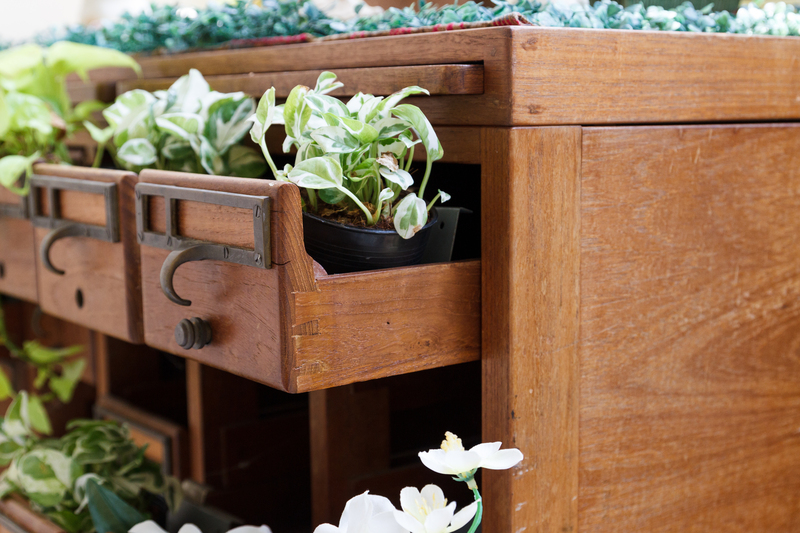Community Resources for Recycling Worn-Out Pots and Pans
Are you wondering what to do with your worn-out pots and pans instead of just tossing them in the trash? With a growing emphasis on sustainability and waste reduction, communities around the world are providing more options for the responsible disposal and recycling of old cookware. In this comprehensive guide, we'll explore the various community resources available for recycling pots and pans, share tips for preparing your cookware for recycling, and highlight creative alternatives to dumping them in the landfill. Whether your cookware is made from aluminum, stainless steel, cast iron, or even nonstick material, we'll help you find the best solution for giving these everyday kitchen items a second life.

Why Should You Recycle Old Pots and Pans?
Recycling worn-out kitchenware is an important step toward reducing environmental impact. Old pots and pans are often made from metals and materials that don't decompose in landfills, taking up space for decades or even centuries.
- Conserving natural resources: Metals like stainless steel and aluminum can be reused, cutting down the need for raw materials.
- Reducing landfill waste: Large, bulky cookware contributes significantly to landfill mass.
- Preventing hazardous material leaks: Some nonstick and coated cookware may leach harmful chemicals if left in landfills.
- Supporting local recycling efforts: Communities save money and resources when more items are kept out of the waste stream.
By opting for responsible disposal and recycling, you're playing a part in a more sustainable and cleaner environment.
Common Types of Recyclable Pots and Pans
Before you search for community recycling resources for pots and pans, it's important to know what types of cookware can go through these programs. Some of the most commonly recycled kitchen items include:
- Aluminum pots and pans
- Stainless steel cookware
- Cast iron skillets and Dutch ovens
- Copper-bottom pans
- Uncoated metal bakeware
Note: Not all recycling facilities accept nonstick, Teflon-coated, or glass cookware, so you may need to check specific guidelines in your area.
Local Recycling Centers and Drop-Off Points
Finding a Recycling Center Near You
The first step in responsibly recycling your worn-out pots and pans is to locate a nearby community recycling center or scrap metal collection site. Many towns and cities offer curbside recycling but often exclude certain items like bulky cookware. Instead, look for:
- Municipal recycling depots: City and county recycling facilities commonly have special drop-off bins for metals.
- Scrap metal yards: These are excellent for recycling metal kitchenware, especially if you have larger quantities.
- Household hazardous waste events: Some communities host events where bulky or unusual household items are accepted.
To find a location:
- Visit resources like Earth911, which lists community drop-off points by ZIP code.
- Use your city's official waste management website to search for 'recycling worn-out cookware' or 'metal drop-off locations.'
What Happens at the Recycling Center?
Once you bring in your old pots and pans for recycling, staff will often check the materials and remove any non-metal parts, such as plastic handles or glass lids (which usually need to be disposed of separately). The cookware then goes through a process of sorting, shredding, and melting before being reused for new products.
Specialized Community Recycling Programs
Curbside Recycling Programs: Are Pots and Pans Accepted?
Many people assume they can add worn-out cookware to the regular curbside bin. However, most municipal curbside programs do not accept pots and pans due to their size, weight, or mixed materials. It's crucial to read your city's recycling guidelines very carefully.
- In some places, small uncoated metal items may be approved for curbside collection if they fit inside the bin and have all nonmetal parts removed.
- Glass, ceramic, and nonstick-coated cookware are almost always excluded.
Double-check the specific instructions with your local waste authority before placing cookware at the curb.
Community Swap Events and Kitchenware Drives
Some communities now host kitchenware swap events or household goods drives. These gatherings invite residents to bring unwanted kitchen items, including gently used or even slightly damaged cookware, for others to claim or for donation to charities.
- Check local Facebook groups, community bulletin boards, or your city's events calendar for upcoming swaps.
- Some schools, shelters, or community kitchens accept working cookware--even with cosmetic flaws--if it's still usable.
Participating in such events extends the useful life of your pots and pans and provides much-needed resources to others.
Retail Take-Back and Trade-In Programs
Major kitchenware retailers are beginning to offer take-back or trade-in programs specifically for old cookware. For example:
- Some department stores allow you to trade in old cookware for discounts on new purchases.
- Specialty brands, like Calphalon or Le Creuset, may accept their products back for recycling or refurbishment.
Before visiting, call ahead or check the retailer's website to confirm current trade-in policies for worn-out pots and pans.
Preparing Cookware for Recycling
Properly preparing your used pots and pans for recycling is essential to ensure they don't damage sorting machinery or contaminate the recycling stream.
- Remove all non-metal parts: Unscrew plastic handles, knobs, and detachable pieces, and remove rubber gaskets or silicone edges.
- Clean thoroughly: Wash off grease, food residue, or burnt material. While a little surface dirt is okay, stuck-on grime can hinder recycling.
- Group similar materials together: If you have several pieces of the same metal (all aluminum or all stainless steel), bundle them together for easier handling at the center.
- Label if needed: If you're dropping off at a facility that requires sorting, mark items as "aluminum," "cast iron," etc.
Creative Reuse: Alternatives to Recycling Worn-Out Cookware
If your worn-out kitchenware isn't suitable for standard recycling but isn't completely useless, consider one of these creative solutions before disposal:
Repurposing and DIY Projects
- Planters: Transform old pots into quirky garden planters--drill some drainage holes and add soil and your favorite blooms.
- Storage Containers: Use skillets or small saucepans to store office supplies, art materials, or tools.
- Wall Art: Artistic individuals use vintage cookware to create stunning wall displays in kitchens or cafes.
- Candle Holders: Small pans or cupcake tins make excellent bases for homemade candles.
Donations
- Animal shelters: Some shelters repurpose old pans for food and water dishes.
- Local theater groups: Stage crews might use old pots and pans as props.
- Schools or art centers: Education programs sometimes accept metal items for sculpture or crafts.
_A simple call can confirm if your item is useful to a local organization._
Frequently Asked Questions About Recycling Pots, Pans, and Cookware
Can nonstick pans be recycled?
Nonstick and Teflon pans are problematic because the coating can't be recycled in most curbside programs or metal yards. If the pan has significant damage (scratched, peeling, or warped), check with your local scrap yard if they will accept it after all non-metal parts and coatings are removed. Some specialty recycling companies process these items, but be sure to verify before dropping them off.
Is it possible to recycle glass or ceramic bakeware?
Unfortunately, most municipal recycling systems do not accept Pyrex, glass bakeware, or ceramic cookware. These items have different melting points than typical glass recyclables and must be handled separately. Inquire with local art centers, mosaic hobbyists, or secondhand shops for creative reuse opportunities.
Are lids recyclable?
It depends on the material. Metal lids (without plastic or rubber) may be recycled with metal drop-off items. Plastic lids usually belong in the standard plastics recycling stream--if accepted--while glass lids typically are not recyclable and should be disposed of safely.
How to Encourage Community Participation in Cookware Recycling
More widespread recycling of worn-out kitchenware depends on active community engagement and education. Here's how you can help promote cookware recycling in your neighborhood:
- Organize a neighborhood collection day for metal cookware and take items to the recycling center in bulk.
- Share resources on social media to inform others about proper disposal and local drop-off points.
- Advocate for swap events or charity drives at local churches, schools, or community centers.
- Partner with local businesses to sponsor trade-in campaigns or awareness-building events.
Even a little effort can make a big difference in reducing landfill waste and promoting sustainable habits.

Recycling Resources Directory
- Earth911 - Tool for finding recycling centers by ZIP code.
- Call2Recycle - Directory for sustainable recycling and donation programs.
- Your city or county public works website - Search under 'recycling' or 'waste management' for cookware-specific details.
- Local scrap metal yards - Search online or in the local business directory for nearby metal recyclers.
- Secondhand and charity shops - Accept gently used or refurbished cookware for reuse.
Conclusion: Make a Difference with Proper Cookware Recycling
From aluminum skillets to cast iron Dutch ovens, responsible disposal of old pots and pans is easier than ever with the right knowledge and a little community support. Local recycling centers, specialized drop-off sites, swap events, and creative reuse are just a few of the ways you can keep worn-out kitchenware out of the landfill, protect the environment, and support members of your community.
Next time you're ready to upgrade your cookware, remember these tips and make use of the community resources for recycling pots and pans. Not only will you be reducing your household waste, but you'll also help create a cleaner, safer world for everyone.
Do you have a favorite local resource for recycling cookware? Share it with your community, and let's continue the movement for responsible kitchenware recycling!
